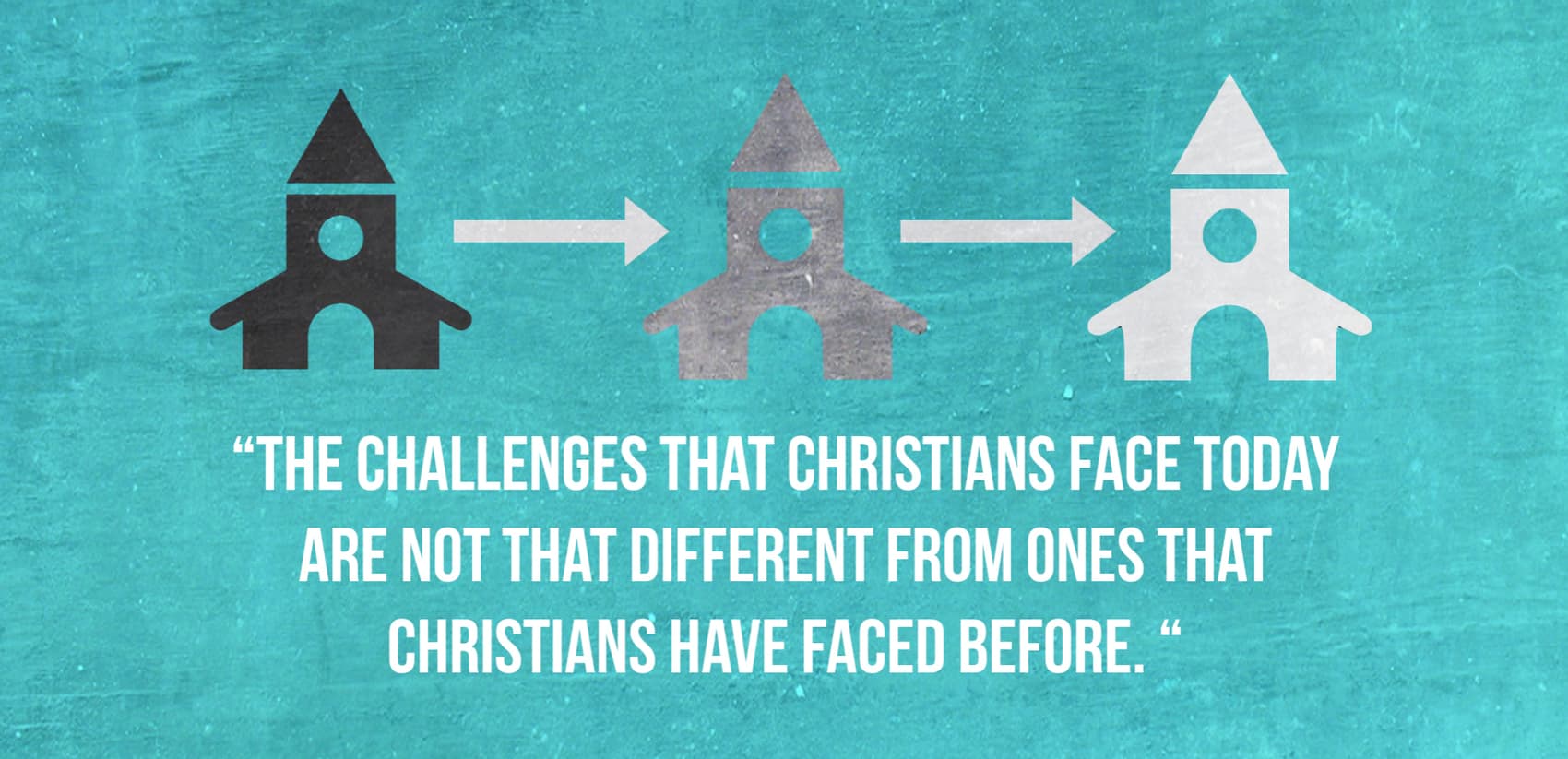
The following is part of an interview I did with Baptist Press related to my book and DVD-curriculum, Christian History Made Easy.
Professor Timothy Paul Jones acknowledges that plenty of people view the study of history as boring–full of drab facts and dates they’d rather forget.
But Jones says it shouldn’t be that way, and he’s written a book about Christian history–now in the form of a small-group DVD curriculum–that recounts 2,000 years of Christian faith with fascinating stories he believes are as entertaining as a good fiction book. Sure, the facts and dates are there, but they’re not the focus.
Jones’ goal is to help Christians understand and appreciate their faith more by filling in that huge two millennia gap between the apostles and, say, Billy Graham.
The book and curriculum are titled, perhaps appropriately, “Christian History Made Easy” (Rose Publishing). It’s a 12-week session that has been used by churches, homeschoolers and Christians schools. The curriculum intersperses a Jones lecture with animation, intended to make it more entertaining.
Christians, Jones says, need to know more about the history of their faith.
“What draws us together as believers is not only a shared Spirit and a common faith but also the shared story of how God has worked through past believers,” said Jones, professor at The Southern Baptist Theological Seminary in Louisville. “If we aren’t aware how God worked in their lives, we are less likely to recognize the rhythms of God’s work in our lives; we are unable to distinguish which truths are vital to the faith; and, we are less able to articulate why we believe what we believe.
“The challenges that Christians face today are not that different from ones that Christians have faced before. Even if previous generations of Christians failed to face these challenges well, understanding how and why they responded as they did can help us to consider the challenges of our own generation with deeper humility and wisdom.”
Baptist Press (BP) talked to Jones about the importance of learning Christian history and his philosophy of teaching it. Following is a transcript:
Q: Why should the average Christian care about church history, particularly those Christians who believe the Bible is sufficient and church history has no authority?
A: It’s true that Christian history itself has no authority, but what we see in church history is how the Bible has been used in the life of the church, and by looking at how the Scriptures have been used in the life of the church and how the Spirit has worked through the Scriptures, that helps us to be wiser in how we respond today to issues that we face.
Even as we recognize scripture is our sole authority, church history is still really important because of the way we can see, in church history, how the Spirit has worked through the scriptures, among our brothers and sisters who came before us. We learn how they used it wisely and how they used it poorly. Both of those can help us to make wiser choices in how we use the Scriptures, how we proclaim the scriptures today.
Q: Do you think learning church history can impact our faith?
A: It helps us distinguish what is essential, what is non-essential, what matters. For example, in the Great Awakening, I think it would help us to recognize at this juncture in Baptist history how John Wesley, an Arminian, and George Whitefield, a Calvinist, worked together and were able to work in partnership with one another. That’s helpful and instructive for us today.
Click here for the rest of the interview.
